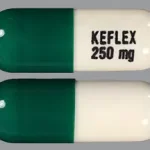When it comes to managing cholesterol levels, atorvastatin has emerged as a widely prescribed medication. In this comprehensive guide, we will delve into the world of atorvastatin, exploring its brand name, benefits, usage, side effects, and frequently asked questions.
Whether you’re a healthcare professional seeking to deepen your understanding or an individual seeking information about atorvastatin, this article will provide you with the knowledge you need.
Atorvastatin Brand Name: A Closer Look
Atorvastatin is commonly known by its brand name Lipitor. Developed by Pfizer, Lipitor has gained recognition as one of the most effective medications for managing cholesterol levels. Lipitor belongs to a class of drugs known as statins, which work by reducing the production of cholesterol in the liver.
The Importance of Managing Cholesterol
High cholesterol levels can significantly impact our health, increasing the risk of cardiovascular diseases such as heart attacks and strokes. By effectively managing cholesterol levels, we can mitigate these risks and improve our overall well-being.
Understanding Cholesterol: The Basics
Cholesterol is a fatty substance found in our blood that plays a crucial role in our body’s functioning. It is essential for the production of hormones, vitamin D, and the digestion of fats. However, when the levels of cholesterol become too high, it can lead to the accumulation of plaque in our arteries, obstructing blood flow and causing various health complications.
The Role of Atorvastatin in Cholesterol Management
Atorvastatin, or Lipitor, is renowned for its ability to lower cholesterol levels and reduce the risk of cardiovascular events. By inhibiting an enzyme involved in cholesterol production, atorvastatin helps to decrease the amount of LDL (low-density lipoprotein) cholesterol, commonly referred to as “bad” cholesterol, in the blood. Additionally, atorvastatin can increase HDL (high-density lipoprotein) cholesterol, known as “good” cholesterol, which aids in removing excess cholesterol from the bloodstream.
The Benefits of Atorvastatin
Atorvastatin offers a range of benefits for individuals struggling with high cholesterol levels. Let’s explore some of the key advantages of using atorvastatin for cholesterol management:
- Lowering LDL Cholesterol: Atorvastatin effectively reduces LDL cholesterol levels, which are closely associated with the risk of cardiovascular diseases.
- Increasing HDL Cholesterol: By boosting HDL cholesterol levels, atorvastatin helps promote a healthier lipid profile.
- Preventing Heart Attacks: By reducing cholesterol levels and preventing plaque buildup in the arteries, atorvastatin significantly lowers the risk of heart attacks.
- Reducing Stroke Risk: Atorvastatin also plays a crucial role in reducing the risk of strokes, which can be caused by arterial blockages.
- Managing Inflammation: Recent studies suggest that atorvastatin may have anti-inflammatory properties, which can further benefit cardiovascular health.
Atorvastatin Usage and Dosage
Using Atorvastatin Safely and Effectively
It is essential to use atorvastatin as prescribed by your healthcare provider. The dosage may vary depending on various factors such as the severity of your condition, your overall health, and other medications you may be taking. Always follow the instructions provided by your healthcare professional and never exceed the recommended dosage.
Potential Side Effects of Atorvastatin
Like any medication, atorvastatin can cause certain side effects. While many individuals tolerate it well, it’s important to be aware of potential adverse reactions. Common side effects of atorvastatin include:
- Muscle pain or weakness
- Headache
- Nausea
- Diarrhea
- Joint pain
- Stomach pain
- Changes in sleep patterns
These side effects are usually mild and temporary. However, if you experience any severe or persistent symptoms, it’s crucial to seek medical attention promptly.
Frequently Asked Questions (FAQs) About Atorvastatin Brand Name
- What is the recommended dosage for atorvastatin? The typical starting dose of atorvastatin is 10-20 mg once daily. However, your healthcare provider will determine the appropriate dosage based on your specific needs and health conditions.
- How long does it take for atorvastatin to show results in lowering cholesterol levels? Atorvastatin can start lowering cholesterol levels within two weeks of starting treatment. However, it may take up to four weeks to see the full effects.
- Can atorvastatin be used by pregnant or breastfeeding women? Atorvastatin should not be used by pregnant or breastfeeding women as it may harm the fetus or nursing baby. It is crucial to discuss alternative options with your healthcare provider.
- Are there any dietary restrictions while taking atorvastatin? While taking atorvastatin, it’s advisable to follow a heart-healthy diet low in saturated fats and cholesterol. Avoid excessive consumption of grapefruit juice, as it can interfere with the metabolism of atorvastatin.
- Can atorvastatin be taken with other medications? Atorvastatin may interact with certain medications, including some antibiotics, antifungals, and certain heart medications. Always inform your healthcare provider about all the medications you are taking to ensure safe and effective use.
- Is it safe to drink alcohol while on atorvastatin? Moderate alcohol consumption is generally considered safe while taking atorvastatin. However, excessive alcohol intake should be avoided, as it may increase the risk of liver problems.
Conclusion
Atorvastatin, known by its brand name Lipitor, is a widely recognized and effective medication for managing cholesterol levels. By reducing LDL cholesterol and increasing HDL cholesterol, atorvastatin plays a crucial role in preventing cardiovascular diseases. It is important to use atorvastatin as prescribed and be aware of potential side effects. If you have any concerns or questions, consult your healthcare provider for personalized guidance.
Remember, managing cholesterol levels goes beyond medication. Adopting a healthy lifestyle, including a balanced diet, regular exercise, and avoiding tobacco use, is key to optimizing your cardiovascular health.








